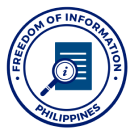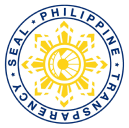INTERCONNECTED FOUNDATIONS: EXPLORING THE LINK BETWEEN LITERACY, PEACE, SECURITY, AND COUNTRY STABILITY 2023 National Literacy Conference Cebu City
Mga kababayan, ladies and gentlemen,
Assalamualaikum.
Madayaw ug maayong adlaw kaninyong tanan.
Magandang araw sa inyong lahat.
Today, I would like to emphasize the crucial role of literacy in unlocking opportunities, empowering individuals, and driving our nation forward. The Department of Education stands at the forefront, paving the way for literacy development in our country through various programs and initiatives. Our goal is to promote functional literacy and ensure that every Filipino possesses the skills and knowledge needed to thrive in today's complex world.
Functional literacy goes beyond simply reading and writing. It encompasses the skills necessary to apply this knowledge in real-life situations. It equips individuals with the ability to make informed decisions, communicate effectively, and actively participate in the workforce and society.
To enhance functional literacy across all levels of education, the Department of Education has taken significant steps. Let me highlight some of the key initiatives undertaken by DepEd: First, the implementation of the K to 12 Program. This is one of the most notable reforms in our educational system. It provides a holistic and well-rounded education and emphasizes functional literacy through the incorporation of practical life skills, work education, and entrepreneurship in the curriculum.
The recent revision of the K to 10 curriculum under the MATATAG Curriculum ensures the development of critical thinking, problem-solving skills, good manners, right conduct, peace education, and other essential skills. This revision acknowledges the evolving demands of the 21st century, where learners must analyze complex issues and adapt to rapidly changing environments.
Second, we have the Alternative Learning Systems (ALS) program, which offers education to out-of-school youth and adults. ALS has significantly expanded access to education for those who may have missed formal schooling, providing not only basic literacy skills but also life skills. This program empowers marginalized individuals, promotes social inclusion, and offers them a chance to earn a formal diploma, leading to improved job prospects and increased self-esteem.
Third, to ensure that school leaders and teachers are well-equipped to teach functional literacy, the Department of Education invests in teacher training and development programs. We contribute to the professional development of teachers through training programs, workshops, and seminars that enhance their teaching methods and keep them updated with the latest educational trends and approaches.
Furthermore, DepEd actively collaborates with various organizations and stakeholders, including non-governmental organizations (NGOs) and the private sector, to promote functional literacy. These partnerships aid in the development of educational materials, access to resources, and the implementation of innovative teaching methods.
Through the Literacy Coordinating Council (LCC), the Department of Education strengthens its commitment to work with legislators and local government units (LGUs) to strengthen relevant policies and literacy support structures at the grassroots level. To date, more than 300 Local LCCs have been established by LGUs, ensuring community literacy mapping out in identifying out-of-school children, youth, and adults, and provide relevant literacy program interventions.
Recognizing the outstanding efforts of partners and stakeholders in community-based literacy development, the LCC has awarded more than 300 LGUs and NGOs through its National Literacy Awards (NLA) program.
Let me highlight an inspiring success story from the NLA winners: the Municipality of Kauswagan in Lanao Del Norte. The LCC recognized their outstanding literacy intervention called the "From Battle Ground to School Ground.” This program has seen a scaled-up response in skills and literacy in conflict-affected areas, transforming communities into productive zones with sustained peace. It has successfully engaged both Muslim and Christian individuals, young and old, and improved the lives of many. This story exemplifies the contributions of LGUs in improving literacy rates and making a difference in the lives of Filipinos.
Moreover, the LCC has developed literacy-related policies, frameworks, standards, and tools based on extensive research and empirical evidence. With the support of the Philippine Normal University, research and development work of the LCC has flourished. The outputs include the National Literacy Framework, standards and monitoring and evaluation tools for exemplary community-based literacy programs, benchmarks for adult literacy competencies, and the National Literacy Information System (NLIS). The NLIS provides a platform for the Council, member agencies, stakeholders, partners, and literacy workers to access and utilize data for policy formulation and literacy program development at both national and local levels.
While we have made substantial efforts to enhance functional literacy in our country, the journey is ongoing, and there are still challenges to be addressed. In order to address the challenges we face, we must prioritize the following actions:
First, we need to ensure that access to quality education reaches even the most remote areas of our country. No Filipino should be left behind due to geographical limitations. We must invest in infrastructure, technology, and resources to bridge the education gap between urban and rural areas. This includes providing schools with the necessary tools and equipment, ensuring a conducive learning environment, and recruiting and training qualified teachers who are passionate about improving literacy rates.
Second, we must focus on narrowing the literacy gap. While we have made progress in increasing literacy rates, there are still disparities among different regions and social groups. We need targeted interventions and programs to address these gaps and provide equal opportunities for all. This may involve implementing literacy programs specifically tailored to the needs of disadvantaged communities, offering scholarships and financial assistance to underprivileged students, and providing additional support and resources for learners with special needs.
Third, we must adapt to the changing demands of the digital age. Technology has transformed the way we live, work, and learn. We must embrace this digital revolution and integrate digital literacy into our education system. This includes teaching students how to navigate information online, use digital tools for communication and collaboration, and develop critical thinking skills to evaluate digital content. As well as teaching them the the responsible and ethical use of Artificial Intelligence.
By equipping our learners with digital literacy skills, we prepare them for the challenges and opportunities of the future.
We must continue to foster partnerships and collaborations. The Department of Education cannot achieve its goals alone. We need the support of NGOs, private sector organizations, and other stakeholders to create a comprehensive and sustainable approach to functional literacy. These partnerships can help us develop innovative solutions, share best practices, and leverage resources to reach more learners and communities.
Maalala ko noong ako ay mayor ng syudad ng Davao. Doon ako natuto kung ano ang literacy dahil isa kami sa mga tiningnan ng Literacy Coordinating Council for recognition in the efforts to include literacy in our city. It is a holistic approach and it is a holistic look at how the city is developing in terms of literacy.
Education is not solely a task for the government; it is a shared commitment among educators, parents, communities, and civil society. When a nation invests in education and promotes literacy among its people, it sets the stage for a peaceful and secure society. Education provides individuals with the tools to understand and resolve conflicts in a peaceful manner, fostering a culture of dialogue and tolerance. It equips them with critical thinking skills, enabling them to challenge extremism, discrimination, and other forms of social unrest. By promoting education and literacy, we empower individuals to become active and responsible citizens who contribute to the stability and harmony of a nation.
Furthermore, education and literacy are essential for national security. A well-educated and literate population is more equipped to address the challenges and threats faced by a country. It enhances the capacity of individuals to understand and respond to national and global issues, such as climate change, economic instability, political conflicts, and more. Education also plays a vital role in building a strong defense force by producing skilled and knowledgeable individuals who can contribute to the security and defense sectors.
Moreover, education and literacy are crucial components of economic development and prosperity. A literate and educated workforce is more likely to have higher employment rates, increased productivity, and better job opportunities. It creates a foundation for innovation, entrepreneurship, and economic growth. By investing in education and promoting literacy, we are investing in the future of our country, unlocking the potential of our people, and paving the way for sustainable development and prosperity. In conclusion, education, literacy, and national security are interconnected pillars that contribute to peace, development, and prosperity in a nation. It is our collective responsibility to support and contribute to these efforts. As educators, parents, communities, and civil society, we must work hand in hand with the government to prioritize education, promote literacy, and ensure a secure and peaceful environment for all.
Mga kababayan, patuloy tayo maging MATATAG sa pagtaguyod ng isang Bansang Makabata at mga Batang Makabansa.
Ang lahat ng ginagawa natin ay para sa Diyos, Bayan, and Pamilyang Pilipino.
Shukran.



